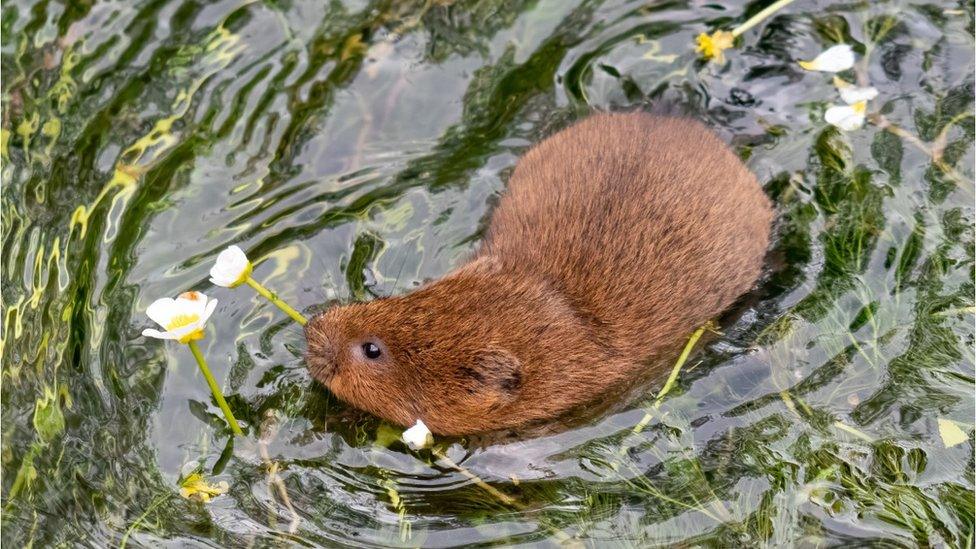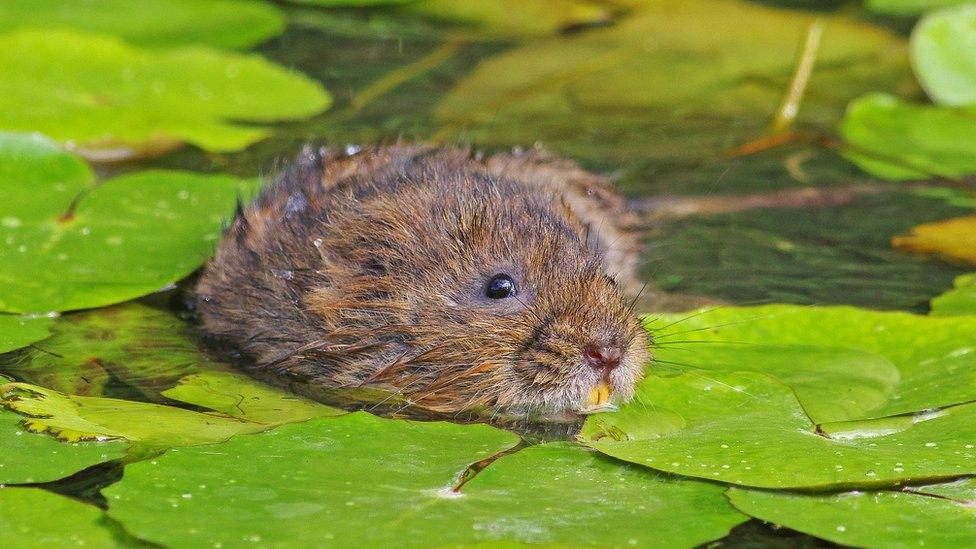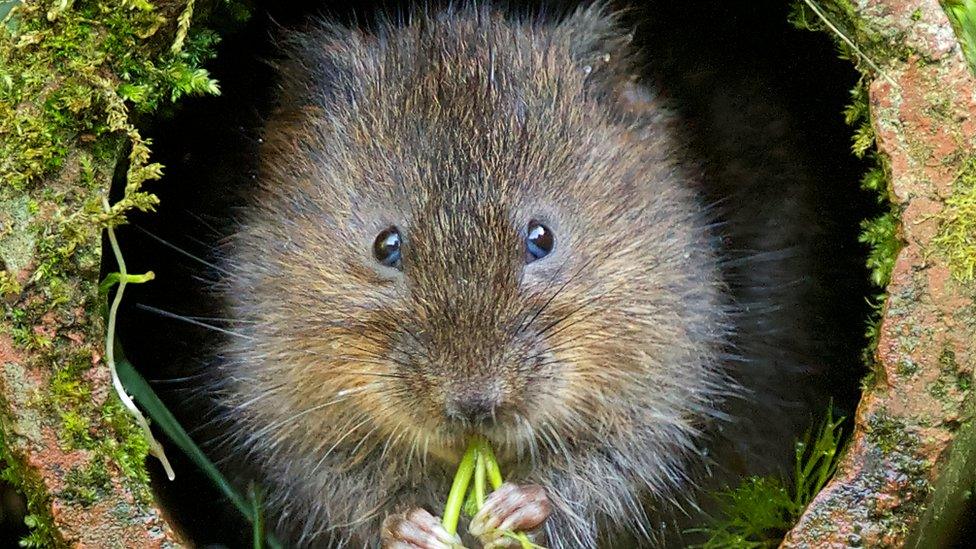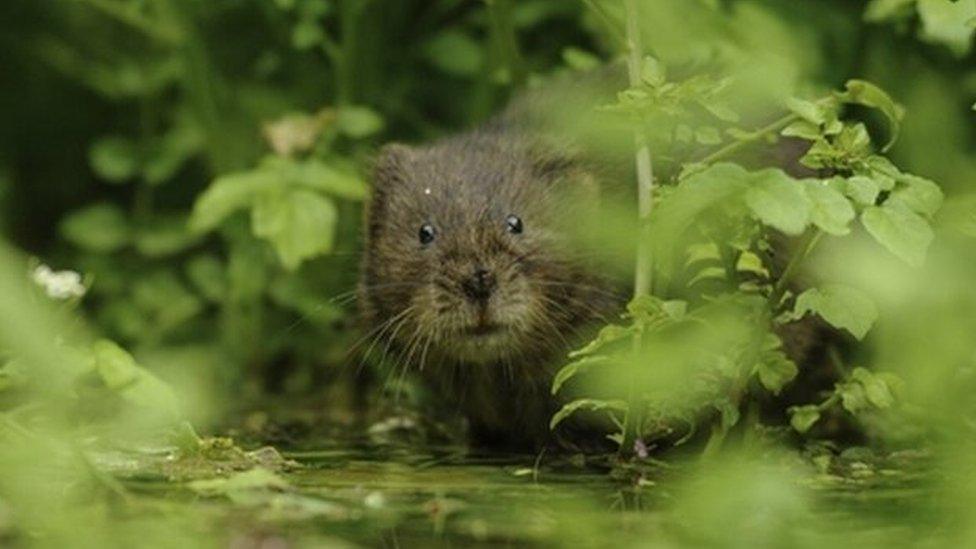Water voles could be reintroduced to Braunton Marshes
- Published

North Devon UNESCO Biosphere said the Braunton Marshes were a "near perfect habitat for the water vole"
An "incredibly important" project to look at whether water voles can be reintroduced to marshes in Devon is under way.
Natural England and North Devon UNESCO Biosphere hope to return water voles to Braunton Marshes, in north Devon.
Water voles have declined in the UK due to habitat loss and American mink being released into the wild.
North Devon UNESCO Biosphere said the Braunton Marshes were a "near perfect habitat for the water vole".
It added the species was legally protected in Britain and on the red list of British mammals at risk of extinction.
It was once a common sight within the network of ditches of Braunton Marshes.
'Fastest declining mammal'
Conservationists will first identify the presence and population size of American mink in the area and nearby,
Derek Gow, water vole expert involved with the project, said: "The water vole is Britain's fastest declining mammal... it's now estimated there are between 130,000 and 77,000 left [across the country]."
"They are a very important creature because they provide a prey base for many wetland predators.
"They also disperse plant seeds though their untidy feeding practices and the rootlets of plants, so they diversify wetland vegetation, and when they make the complexes of burrow systems underground many other species like grass snakes use these in winter.
"The loss of the water vole is not just down to one species going, it has a huge and significant direct impact on many other species... without projects like this, a whole section of our biodiversity slides away," Mr Gow said.

Follow BBC News South West on Twitter, external, Facebook , externaland Instagram, external. Send your story ideas to spotlight@bbc.co.uk, external.
Related topics
- Published14 March 2022

- Published10 November 2021

- Published3 December 2020
